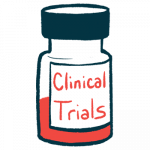Prothena has begun testing single ascending doses (SAD) of PRX012, its investigational anti-amyloid beta antibody therapy, in a Phase 1 clinical trial with healthy volunteers and people with Alzheimer’s disease. This follows the recent approval of the company’s investigational new drug (IND) application for PRX012 by the U.S. Food and Drug Administration. A next-generation antibody,…
Category: Alzheimer’s
Adults, Doctors in US Struggle to Tie Cognitive Problems to Alzheimer’s
Most adults in the U.S., as well as many doctors, have difficulty distinguishing between the early stages of Alzheimer’s disease and cognitive changes due to normal aging, according to the latest annual report from the Alzheimer’s Association. The report draws on responses to surveys, one of adult Americans and another of primary care physicians in the…
Dual Vaccine Shows Promise for Treating Alzheimer’s in Early Study
A dual vaccine targeting both amyloid plaques and tangled fibers made up of tau — two abnormal protein aggregates that build up in the brain of those with Alzheimer’s — may have potential to treat and prevent the disease. Prothena, its developer, has found preclinical evidence that the vaccine drives the generation of a sufficient…
Trial Data Further Support Gingipain Suppression as Potential Therapy
Atuzaginstat (COR388), Cortexyme’s investigational oral therapy, effectively suppressed the activity of its target — toxic enzymes called gingipains — and was associated with reductions in several disease biomarkers in people with mild-to-moderate Alzheimer’s, according to updated data from the Phase 2/3 GAIN clinical trial. Similar to previously reported findings, these benefits were most pronounced among patients…
Amyloid, Tau Levels Continuing to Fall With Aduhelm’s Long-term Use
Aduhelm (aducanumab) continues to clear away amyloid plaques and tangled fibers made up of tau — two abnormal protein aggregates that build in the brain of those with Alzheimer’s disease — after nearly two and a half years of treatment, Biogen, which markets the treatment, reports. It also announced plans to begin patient screening for ENVISION,…
AEV103 Can Quell Brain Inflammation, Slow Cognitive Decline in Mice
AEV103 (3,6’-dithiopomalidomide), a potentially immunomodulating medicine, was able to quell brain inflammation and slow cognitive decline in a mouse model of Alzheimer’s disease, a study has found. The medicine, developed originally at the National Institutes of Health (NIH) and now licensed to AevisBio, exerted its effects even in the absence of any change in the…
$2.85 Million Awarded For Research on Aging and Alzheimer’s
The National Institute on Aging has awarded $2.85 million in funding to a research team from the University of Tennessee Health Science Center (UTHSC) to study the role of mitochondria — cells’ powerhouses — in age-related diseases, such as Alzheimer’s. The five-year funding will support a project called “The interaction effects of genetic variants, age,…
Seelos Gears Up for Pilot Study in Australia Testing SLS-005
Seelos Therapeutics is gearing up for a pilot study, in Australia, testing SLS-005 (trehalose) — its investigational therapy for people with Alzheimer’s disease — after receiving an acknowledgment letter from the country’s regulatory body for clinical trials. The letter, from the Australian Government Department of Health Therapeutic Goods Administration (TGA), was issued after the company…
Eisai Starting Process of Requesting Lecanemab’s Approval in Japan
Eisai has started submitting data to the Japanese Pharmaceuticals and Medical Devices Agency (PMDA) in support of an application for approval of its investigational lecanemab (BAN2401) to treat early Alzheimer’s disease. This submission followed the company’s prior assessment consultation with the PMDA, given in advance of an approval application and intended to accelerate its review by identifying and addressing…
Roche Moving Gantenerumab Into Phase 3 Prevention Trial for Early Alzheimer’s
Roche is launching a Phase 3 clinical trial to evaluate the ability of its investigational antibody therapy, gantenerumab, to slow Alzheimer’s progression in people with early signs of the disease, the company announced. Called SKYLINE (NCT05256134), the trial is now recruiting 1,200 cognitively unimpaired participants between ages 60 and 80 who show signs of brain…











